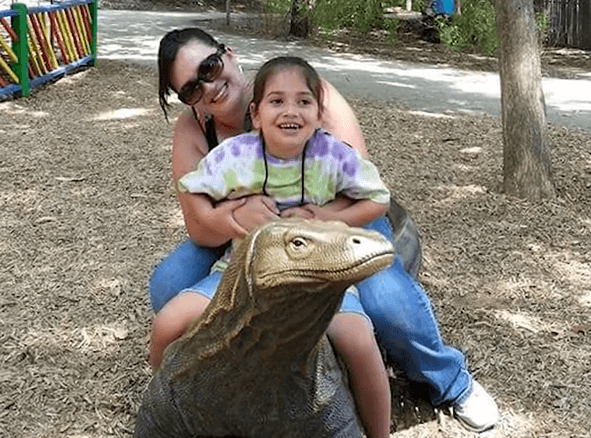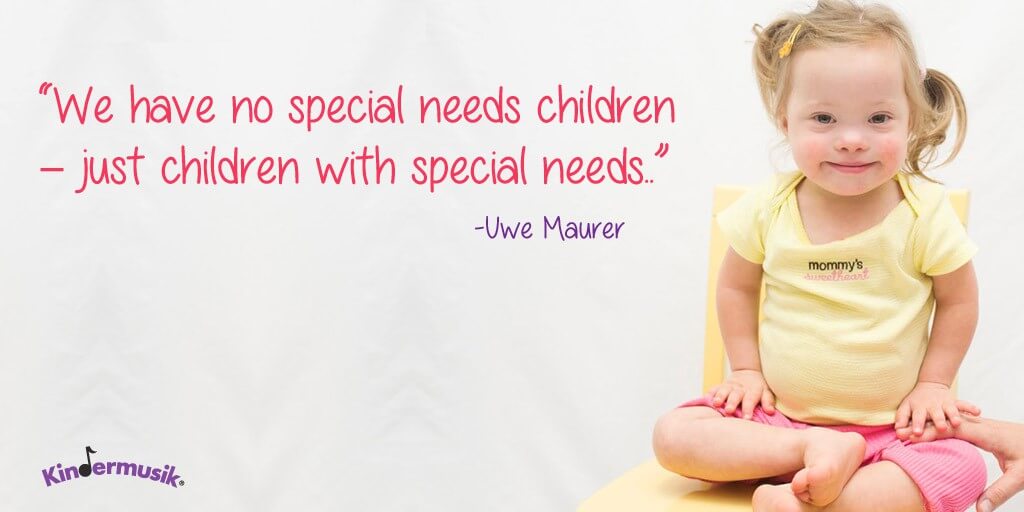First smile. First time sitting up. First steps. First time saying “mama” or “dada.” Oh yes. Every parent can create a list of enduring moments worth waiting for and savoring.
In the Kindermusik community, we concoct our own lists, too, and our collective heart for children and families overflows with the memories of how music reaches children of all abilities.
Take Filomena. Music helped to create so many moments worth waiting for:

Then there are Meghan and John, whose stories remain rooted in the heart of Kindermusik Maestro educator, Christa Beck, who has a passion for incorporating children with special needs into Kindermusik classes:
Meghan’s Moment Worth Waiting For: Early in my Kindermusik career, Meghan a little girl with Down syndrome was working so hard to walk. She was approaching age 2. During class one evening, Meghan walked across the room for the first time. The entire class began to applaud and cheer. Her Mom was in tears and still talks about that moment to this day.
John’s Moment Worth Waiting For: During a preschool age class, I had a mostly non-verbal preschool boy with autism. After two weeks of repeating an activity, the third week again we were passing around a rooster puppet and singing “Kukuriku.” John sang those notes clear and on pitch. It was the most he had sung (or spoken) around other children.
Every child impacts us in profound ways because every child is profoundly beautiful, including a little boy named Lucas with brittle bone disease, whose story Kindermusik educator Betsy Gurske shares:

5 benefits of music for children with special needs
Yes! These moments serve as reminders about the personal power of music on a child’s everyday life. However, scientists, music therapists, and Kindermusik educators also know how the research backs up the moments.
- Playing instruments supports fine motor skill development
- Moving to a steady beat encourages gross motor skills development.
- Playing music in a group increases empathy and teaches other key social-emotional skills, such as turn-taking, listening, and responding.
- Music can relieve stress, decrease blood pressure, and even shows to help with the reduction of pain.
- Music gives verbal and non-verbal children a way to express thoughts, feelings, and ideas.
Do you have a child with special needs? Come visit a Kindermusik class together and experience your own musical moments worth the wait!







 With a large number of dual-income families, the school day often extends to after school programs. However, for children with special needs, such as Autism Spectrum Disorder, the options for a quality after school program curriculum are limited. As published in the
With a large number of dual-income families, the school day often extends to after school programs. However, for children with special needs, such as Autism Spectrum Disorder, the options for a quality after school program curriculum are limited. As published in the ![KindermusikPresents_ABCMusicAndMe_AGlobalEarlyChildhoodCurriculum[1]](https://media2.kindermusik.com/website/sites/2/2014/05/KindermusikPresents_ABCMusicAndMe_AGlobalEarlyChildhoodCurriculum1-300x167.png)